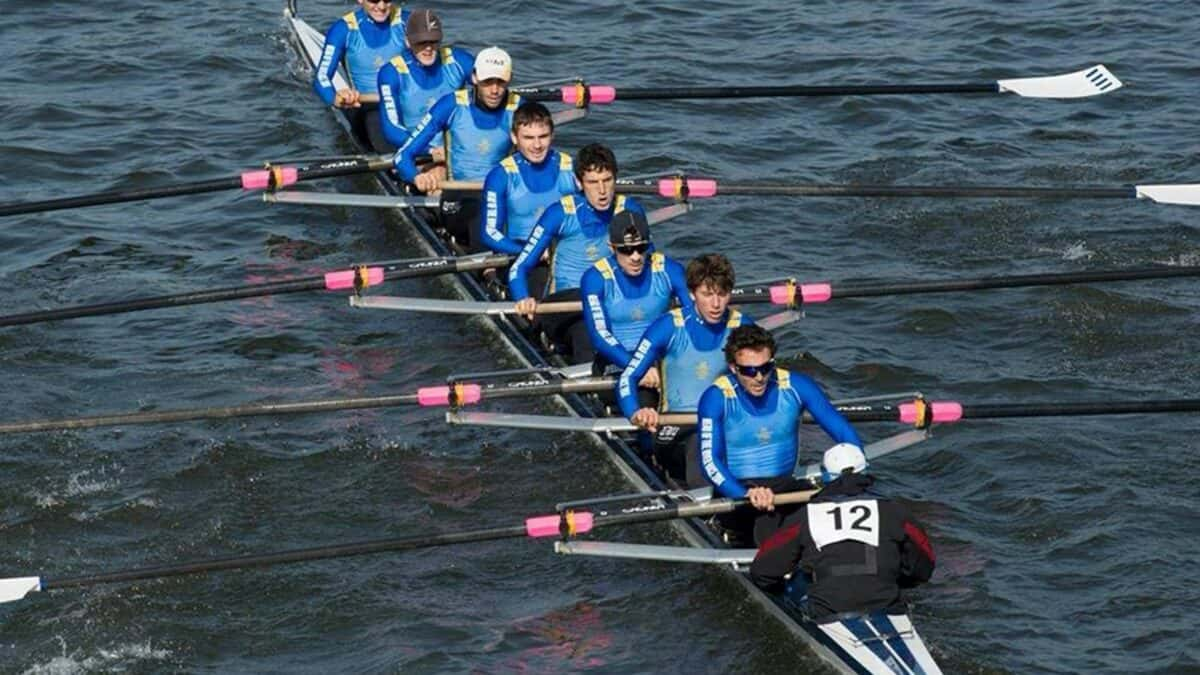
24 Aug 2015
University rowing through the ages - the University of Pavia, Italy
The Romans called it Ticinus Fluvius, along whose banks in AD 476 the last emperor made his final stand in the declining days of the Western Roman Empire. Today, more than 1,600 years later, the Ticino continues to bear witness to a different sort of battle: one of boats and blades.
Since 1929, the crews of Pavia and their rivals from the University of Pisa have contested for supremacy in eights in the Regatta Pavia-Pisa that is hosted alternately by each institution. The regatta itself commemorates the students of both universities who gave their lives in the opening battles of the first Italian War of Independence in 1848.
Despite a number of difficulties over the years, the race has been a near annual feature and is in fact second in age only to the famous Boat Race between Oxford and Cambridge Universities in Great Britain in terms of European university rowing competitions. This link was further highlighted during a special edition of the match in 2011 to celebrate 650 years since the founding of the University of Pavia that saw crews from both Oxford and Cambridge participate alongside Pavia and Pisa. As of 2015, when Pavia took the gold, the record stands at 32 wins for Pavia and 18 for Pisa.
Rowing at Pavia, however, includes far more than simply one race. “The university rowing calendar starts in February and ends in September,” explains Cesare Dacarro, president of the rowing club. “Beyond the Regatta Pavia-Pisa, there are several competitions through the year: three regional level regattas, three national level regattas, three Italian Championship regattas and the Italian University Championships”, which are held each May. Pavia topped the ranking at this year’s event with 205 points with Pisa close in second place with 202.
The team also focuses on a few major international events each year, such as Head of the River in Great Britain, while individual students and graduates regularly participate on Italian national teams at World Rowing Cup and World Rowing Championship events at both the under 23 and senior levels, as well as the Olympic Games. Pavia rower Simone Molteni recently won gold in the Italian lightweight men’s double sculls at the 2015 Universiade in Korea.
“Studying and rowing are very balanced at Pavia,” Dacarro says, “and almost all athletes are part of the national team at least one time in their course of study. From the 1980s to today there are about a hundred athletes who have worn the Italian team’s blue jersey, who were students at the University of Pavia. These athletes have brought in more than 90 medals in World Championships and Olympics, of which 40 have been gold.”
“The competitive team at Pavia consists of about twenty athletes,” says Dacarro, “and all are students at the University.” A recreational or amateur programme also exists for both students and members of the community. “There are another 50 students and 20 community youth in the amateur programme each year. Newcomers are also included here and some participate in the National Novice Championships or regional races. We start them off in fours or doubles and following this they will be put in singles.”
Numbering ten students this year, women currently account for about 15 per cent of the team, but this is changing according to Antonio Bassi of the Lombardy Rowing Committee. “Women’s rowing is increasing in Italy, but it is not yet as big as in other countries. One of the next goals will be to have the women participate in the Regatta Pavia-Pisa.”
University rowing is still relatively small in Italy and has been attached to a handful of university rowing centres known in Italian as “colleghi universitari”. These are designated by the Italian Rowing Federation. Pavia received this distinction in 1970 and has steadily grown in success over the years.
World Rowing will take a look at a different university club programmes to find out what makes them unique and what elements have contributed to their success. From student start-ups to Olympian production lines, is there a global definition of success in university rowing? If you think your university should be profiled, please contact us and tell us what sets your team apart: media@fisa.org

